Violence was a topic on the electoral agenda in Ecuadorbut the assassination this Wednesday of the candidate Fernando Villavicencio it marks a turning point and now colors the entire presidential campaign towards the elections on August 20.
Villavicencio was shot dead after a rally in Quito just before getting into his truck.
LOOK: Fernando Villavicencio is murdered: 3 keys to understanding the wave of violence that is shaking Ecuador
Of all the possible electoral scenarios that analysts predicted, this one did not appear in the pools, despite the exponential growth of violence or Villavicencio’s own speechwhich claimed that the country had become a “narco-state” and publicly claimed to have received death threats from “criminal groups”.
“Villavicencio’s frontality stepped on the corns of many involved with organized crime and its large businesses through the State,” Luis Córdova, director of the Research, Order, Conflict and Violence program at the Central University of Mexico, maintains in dialogue with BBC Mundo. Ecuador.
In his opinion, it has a logical sequence in the escalation of violence. If in 2021 the murder rate it was 13 per 100,000 inhabitants, in 2022 it rose to 22.6 and due to the trend that the country has, it is expected that in 2023 it will reach 40 per 100,000 inhabitants.
Although the one on Wednesday is not just any homicide, of course. comes with message.
“This murder is a political message of the irregular, of fear,” says Pedro Donoso, political analyst and general director of the consultancy Icare Inteligencia Comunicacional.
And for Córdova it shows “not only the influence of drug trafficking, but of criminal economiesmuch more diverse in the country”.
But while this message has now been heard loud and clear, it’s not the first time it’s sounded.
“Criminals do not operate alone”
The one in Villavicencio is the last of a series of attacks against politicians of the country that, says Donoso, began in 2020 with the murder of Patrick Mendozacandidate in the legislative elections of the following year.
2023 is being more bloody. In May they attacked Luis Chonillo, mayor of Durán. And just a few weeks ago they murdered Augustine Intriagomayor of Manta, the most valued politician in the country and, according to analysts, with a political projection in the future.
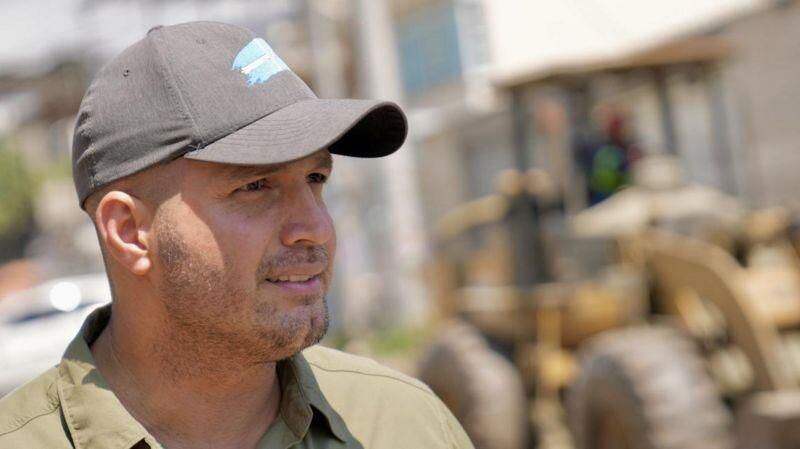
“With the first murder (of Mendoza) I remember thinking that the country was getting out of hand. We said that we were going to become Venezuela and this no longer applies, because We are already the Colombia of the 80s and 90s”, remarks Donoso.
The expert refers to the recurring message of fear from some political sectors that Ecuador could end up in a crisis as deep as the one Venezuela has been experiencing for years, something that has been repeated in electoral campaigns in many other countries.
On the other hand, according to Donoso, the current violence is roughly similar to what Colombia experienced because of the drug traffickers 40 years ago.
The country escalated violently on July 23, when Intriago was shot dead.
“We did not give the murder of the mayor of Manta the political importance it deserves. It is the murder of a state representative. That should have told us that we had lost any levelthe papers”.
They are the loudest echoes of a problem that extends throughout the country, with main resonance on the coast and a strong focus on Guayaquilthe main port and with tentacles at various scales.
“Criminals do not operate alone, they do so with the collusion of security agents at all levels,” accuses Luis Córdova.
For this expert security analyst, the murder of Villavicencio is “the product of the clumsy and foolish war against drugs, in which public security continues to be militarized, the infiltration of drug traffickers in the State security forces, judges, prosecutors…”.
The factors of the drug
The growing importance of criminal gangs associated with drug trafficking in Ecuador is due to several factors.
One is the change in the “geopolitics of cocaine” after the peace agreements in Colombia in 2016 which, together with the lack of a joint policy with Ecuador in this regard, “causes the guerrillas and the FARC to penetrate Ecuador,” says Córdova.
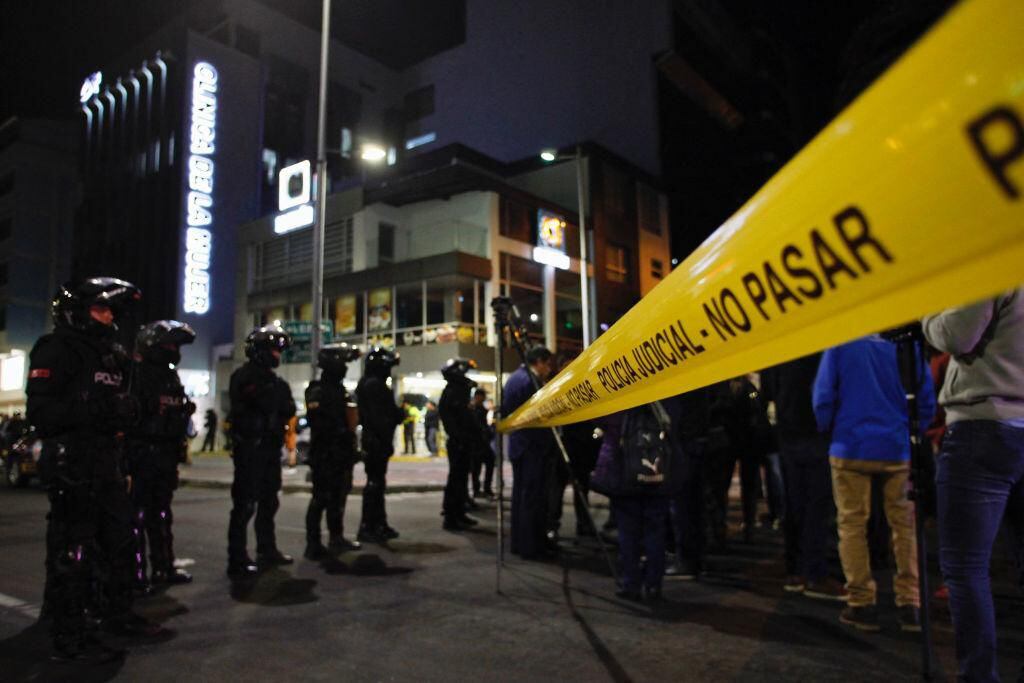
For the analyst, another factor is the institutional and police degradation“the degradation of power, the instrumentalization of the State security forces and that this facilitated extortion networks to privilege certain drug trafficking organizations in exchange for information.”
Between 2013 and 2017, a band known as The Chonerosbut the assassination of its leader, Jorge Luis Zambrano González, alias “Rasquiña”, led to an atomization of the criminal gangs, which influenced the expansion of violence.
“Another reason is the policy of disinvestment and dismantling of the State, where the budget for prisons is reduced, for example, and this increases violence,” remarks Córdova.
“We are in a homicidal ecosystem that facilitates this escalation of criminal violence. There can be no peaceful coexistence in society if state resources are not used for inclusion”.
And finally, he points out that there is currently “an absurd formula in the war against drugs and these gangs, but the flows of dirty money that drug traffickers move are not cut off. And if this is not cut, nothing is resolved ”.
The consequences in the campaign
Experts agree that it is still early to know how the assassination of one of the candidates will affect the presidential campaign.
“Before, they asked me what could make everything change radically and I didn’t have the ability to visualize an event like this. But It is definitely a turning point. and the surveys that were up to now are useless. This disrupts absolutely everything,” says Donoso.
“Violence is a big elector that is not on the ballot,” he says.
Until now, the polls showed a high degree of undecided, 40%, who can lean to one side or the other of the political spectrum depending on the latest events.
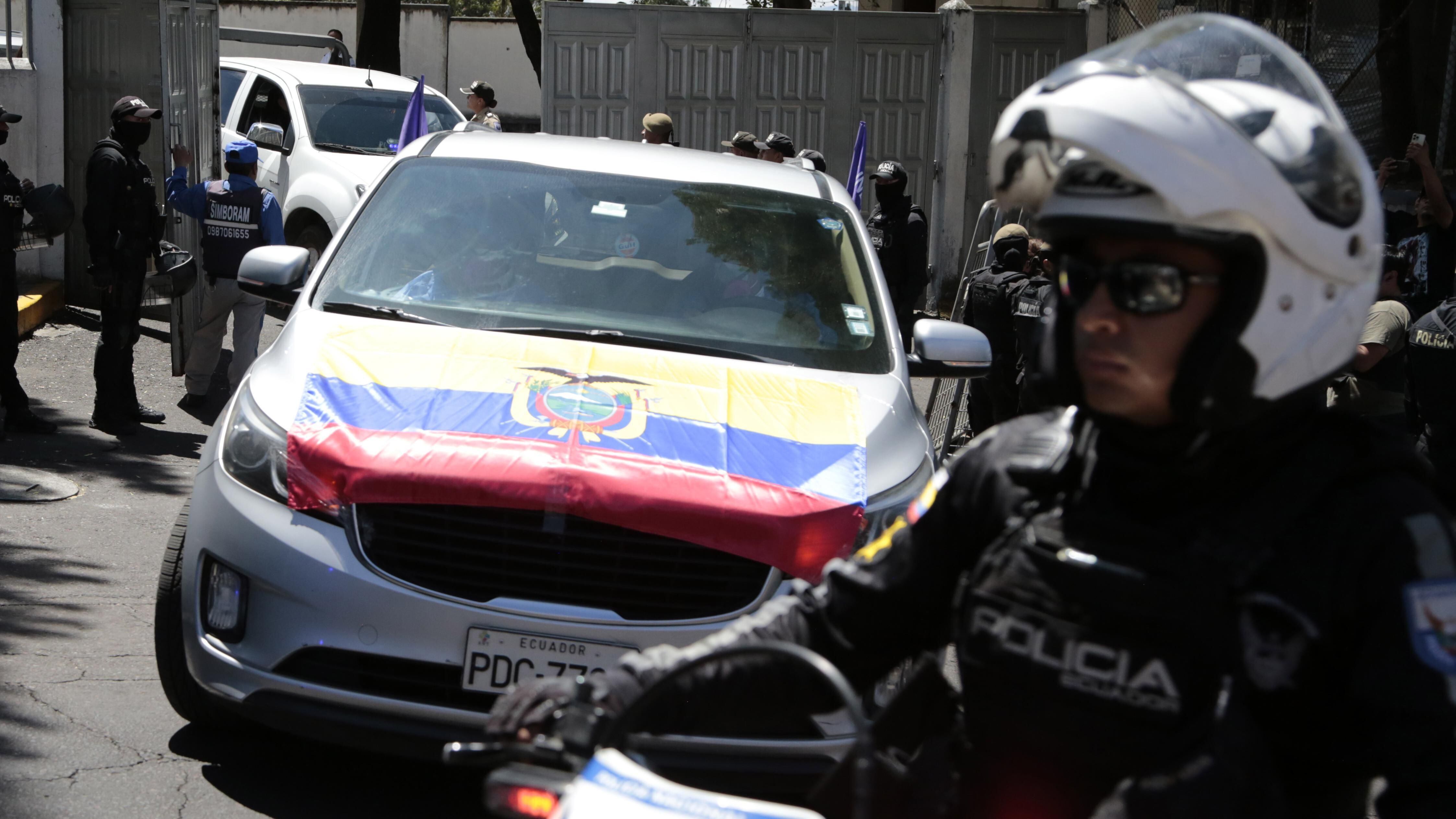
According to the surveys carried out so far, the candidate of the movement of former president Rafael Correa (2007-2017) was at the head, Luisa Gonzalez (Citizen Revolution Movement), followed by otto shoneholznerwho was vice president in the government of Lenín Moreno, the indigenous candidate Yaku Perezthe late Villavicencio and Jan Topicbusinessman.
“An act of violence like this in Quito, where they had not experienced acts of criminal violence at this level before, can cause fear in the middle classes and strengthen Bukelist proposals, because it can position the idea in the electorate that he is a hand candidate. the one who must win the presidency lasts ”, says Córdova.
And he alludes to Topic, an outsider of this contest that has maintained a speech focused on insecurity in the style of the president of El Salvador, Nayib Bukele.
Analysts are not so clear How could it benefit or harm González.
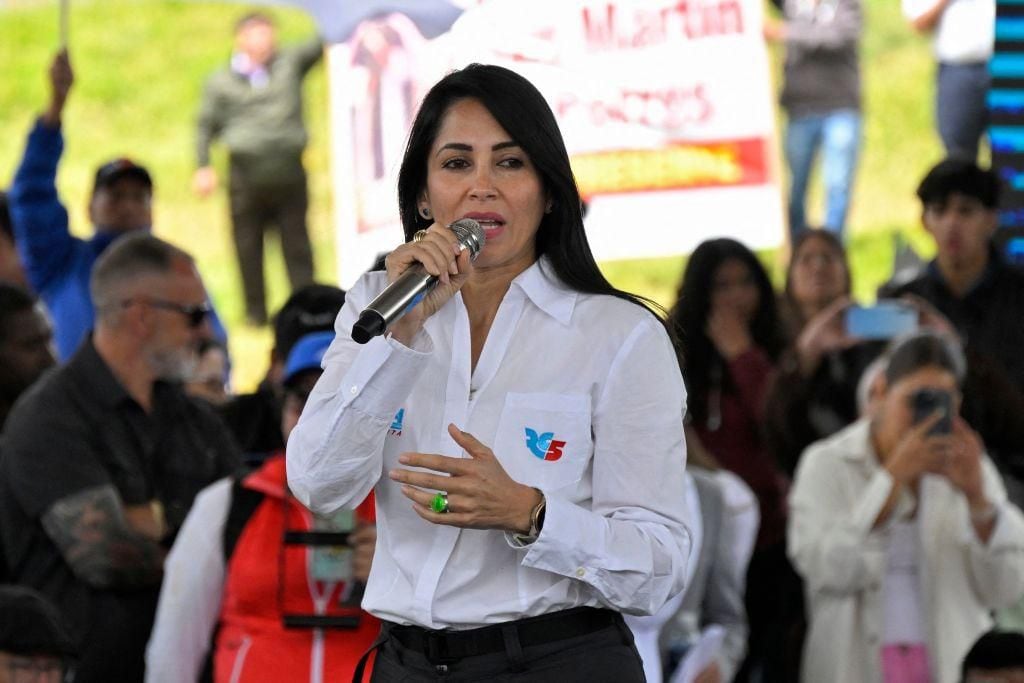
“Revolución Ciudadana can cleverly build a framing (political message framework) in which they say that ‘this [la violencia] Correísmo did not happen with us,’” observes Donoso.
But he also points out that there is another scenario in which this event could harm them: “Because Fernando Villavicencio was the most radical of the anticorreísmo.”
We will also have to wait for the candidate to replace Villavicencio, his speech and where he is aiming.
a scary message
After the assassination of Villavicencio, comparisons arose with that of the presidential candidate Luis Carlos Galan in Colombia in 1989. At his funeral, a vote was requested for Cesar Gaviriawho later became the winner.
“There are parallels, without a doubt. It also happened during the six-year term of Felipe Calderón (Mexico), when assassinations against politicians grew stratospherically. And there is a logic in this type of political assassination: that of preventing or causing a change in politics, in values, in the perception of the electorate”.
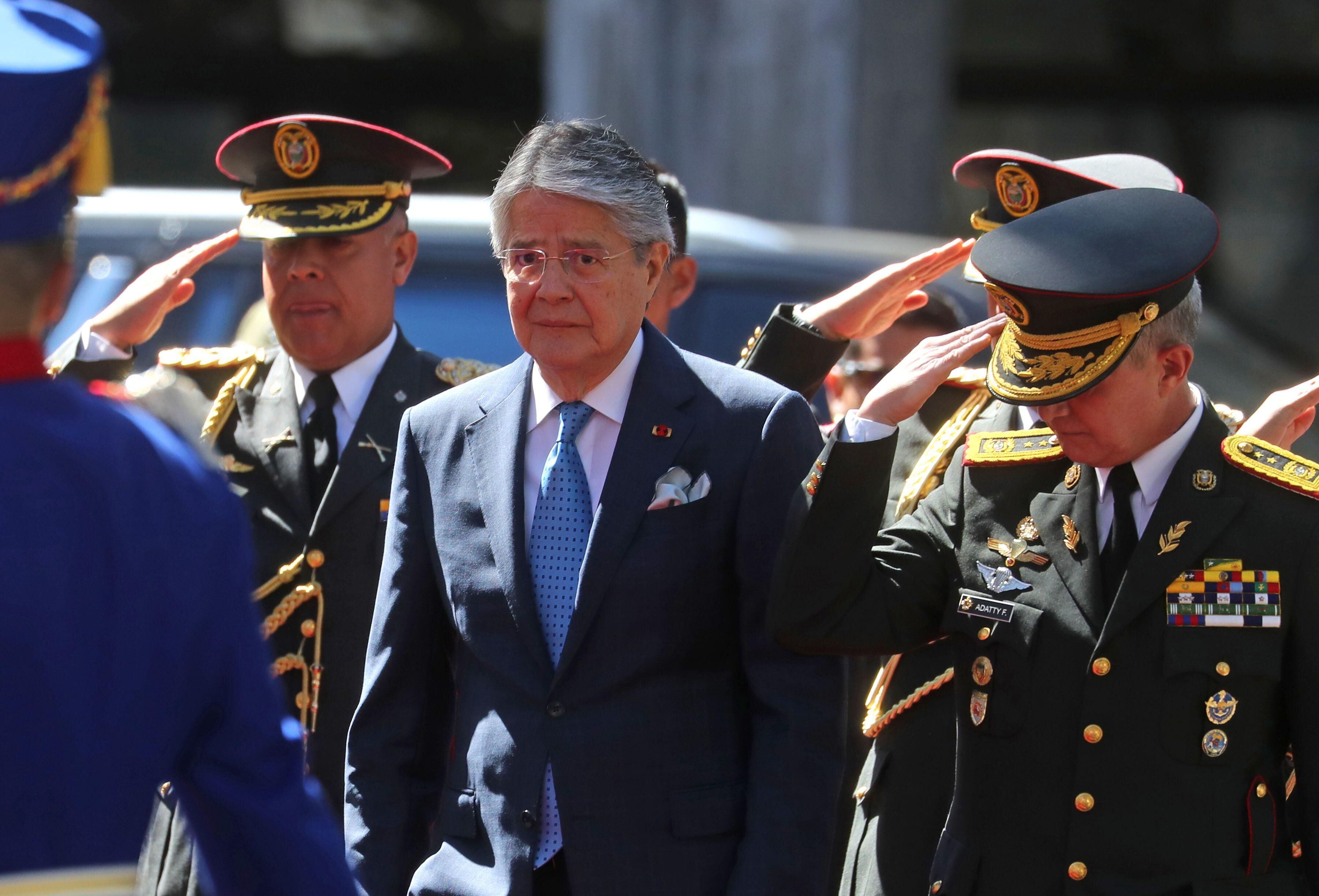
For Donoso, there is a clear challenge with this “disastrous fact”: that of understanding the multidimensionality of violence in Ecuador understood as the degradation of society.
“Ecuador’s social fabric is broken and violence is the path it takes, because the State does not manage social tensions. That’s where violence permeates.”
President William Lasso decreed 3 days of mourning for the murder of Villavicencio, but kept the date of August 20 for the elections.
Donoso approves that the campaign should not stop: “The response of the State it can’t be the standstill. This cannot change the course of democracy. To do so is to agree with the violent”.
Source: Elcomercio
I am Jack Morton and I work in 24 News Recorder. I mostly cover world news and I have also authored 24 news recorder. I find this work highly interesting and it allows me to keep up with current events happening around the world.

:quality(75)/cloudfront-us-east-1.images.arcpublishing.com/elcomercio/SDYCKC3BJZA5RFN3G7ES2K6KXY.jpg)

:quality(75)/cloudfront-us-east-1.images.arcpublishing.com/elcomercio/527CU7W57JGXBBFW2KP2OXLAYU.jpg)

:quality(75)/cloudfront-us-east-1.images.arcpublishing.com/elcomercio/7ODFOJJP25A25KGMCRUMUKPBAY.png)
:quality(75)/cloudfront-us-east-1.images.arcpublishing.com/elcomercio/NPGHRUBPNJF4TL3NDLMWADDM3Y.jpg)
